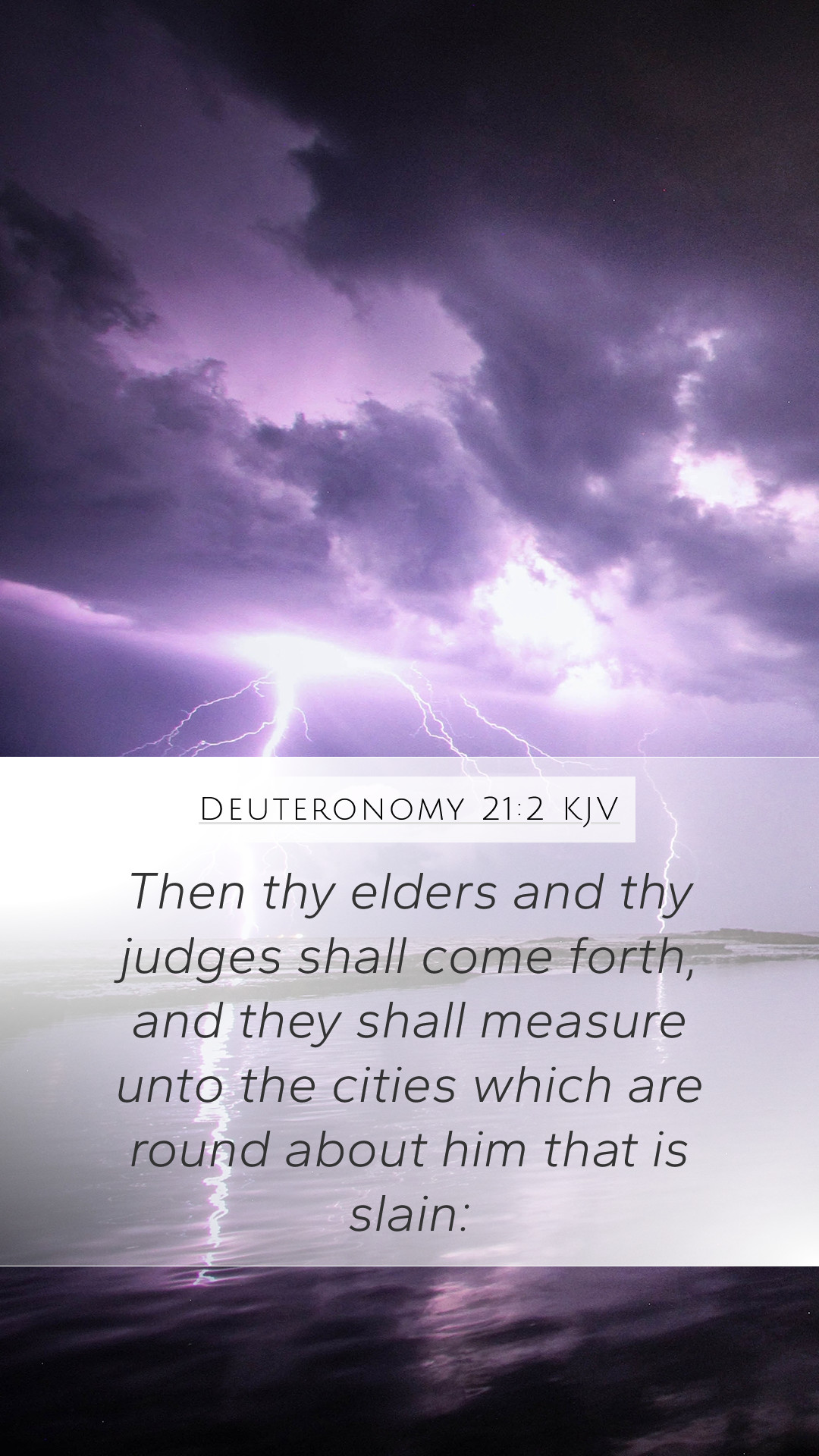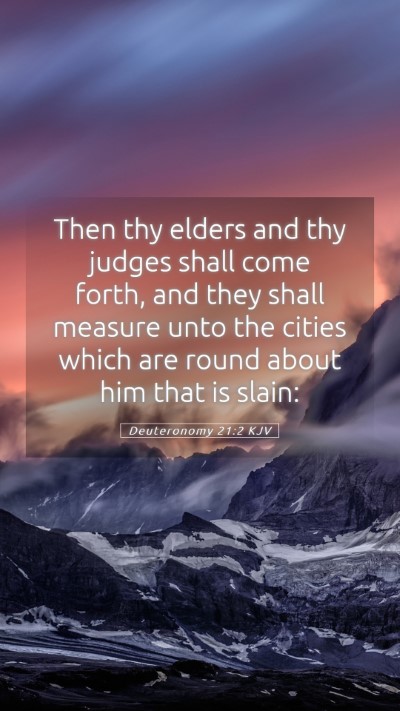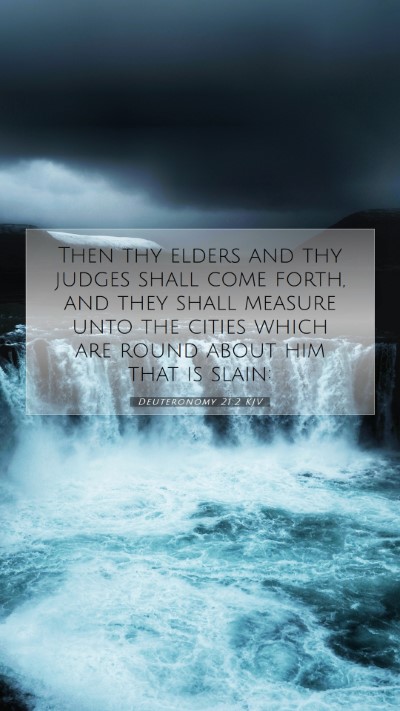Understanding Deuteronomy 21:2
In this comprehensive exploration of Deuteronomy 21:2, we delve into the meaning of Bible verses through a synthesis of insights from esteemed public domain commentaries, including those by Matthew Henry, Albert Barnes, and Adam Clarke. This is not just about deciphering the text; it's about grasping the Bible verse explanations and interpretations that can enrich our understanding of Scripture.
Bible Verse Reference
Deuteronomy 21:2 (KJV): "Then thy elders and thy judges shall come forth, and they shall measure unto the cities which are round about him that is slain."
Commentary Insights
This verse is situated within a broader context addressing the procedures to follow in the aftermath of an unsolved murder, emphasizing communal responsibility and justice. Here are the key insights from various commentators:
Matthew Henry's Commentary
Matthew Henry highlights the principles of justice that this passage establishes. The role of the elders and judges illustrates a community-led approach to justice, necessitating a measured response to crime. This reflects God's order in society where accountability is fostered through collective management.
Albert Barnes' Notes
Albert Barnes elaborates on the necessity of evaluating the proximity of cities to the crime scene. This measurement serves a functional purpose: to identify which city bears responsibility for the murder. The underlying lesson is the seriousness of sin and its implications on the community, positing that it is not merely individuals but communities that are accountable to God.
Adam Clarke's Commentary
Adam Clarke emphasizes the ritualistic aspect of justice as portrayed in this verse. The elders and judges symbolize authority and wisdom, and their gathering for measurement serves as a reminder that justice is not arbitrary but requires consideration and careful deliberation.
Theological Implications
This verse underscores several key theological themes:
- Communal Responsibility: The elders act collectively, underscoring the importance of community in upholding justice.
- Diligence in Justice: The act of measurement is symbolic of the careful consideration that should accompany judgments.
- God's Sovereignty: The procedures laid out illustrate that God is intimately involved in the affairs of man, particularly in matters of justice.
Application to Daily Life
In modern times, the implications of Deuteronomy 21:2 can be both profound and practical:
- Justice in Society: Reflect on how communities respond to wrongdoing and consider your role in promoting justice.
- Accountability: Understand that both individuals and communities bear responsibility for actions and consequences.
Bible Study Insights
This passage is rich for Bible study groups and makes for excellent discussion in online Bible study settings. Use it to explore themes of communal responsibility and justice. Here are some Bible study tools and resources to deepen your analysis:
- Historical Context: Understand the cultural and historical backdrop of the Israelite community.
- Comparative Analysis: Look at similar themes in other parts of scripture.
Cross References
For further study and clarity, consider these related scriptures:
- Exodus 21:12-14: Discusses capital punishment and the cities of refuge.
- Numbers 35:33: Addresses the responsibility of the community regarding bloodguilt.
- Romans 13:1-4: Talks about the purpose of governing authorities in maintaining justice.
Conclusion
Deuteronomy 21:2 serves as a profound example of how God's word provides guidance on justice and community responsibility. The teachings derived from this verse can significantly enhance our Bible verse understanding and Scripture analysis. Utilize this insight in your Bible study lessons to cultivate deeper discussions about the significance of justice in the Christian faith.


